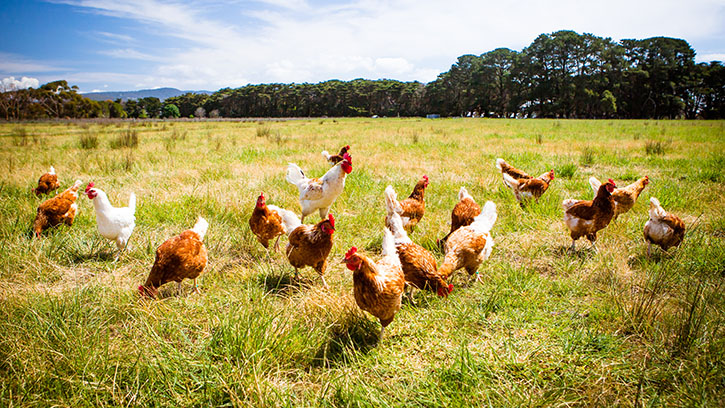The RSPCA has published new advice to encourage birds to range outdoors, now the housing order has been lifted.
After five months indoors, some birds may be stressed and express fear when popholes are opened, said Dr Dr Kate Norman, the RSPCA’s poultry expert, which could lead to issues such as feather pecking or the birds may not choose to go outside at all.
“Our advice is to ensure that measures are put in place on the range to help minimise any fear and stress and to encourage the birds outside.”
Farmers can do this in a number of ways, for example, by providing:
Shelters and structures around popholes to create a ‘corridor’ acting as a transition to the outside (for example trailers or fences covered in windbreak netting or brashings from trees)
Areas to dustbathe
Plenty of natural cover and enrichment close to the popholes which will encourage the birds outside (for example covered areas with suitable dustbathing material and perching structures)
Creating windbreaks for any exposed areas
Ensure any wet areas of land or standing water are fenced off
Creating key resource areas outside the popholes such as dry dustbathing locations and perching structures
Providing a good surface outside the popholes to prevent poaching and maintain clean dry litter inside
Still practising excellent litter management and enrichment inside
Some producers may still have concerns about the risk of bird flu as the disease is still circulating. “We’d like to reassure farmers that the risk level for bird flu has reduced significantly and we’re pleased that the current housing order has now been lifted, so free range birds can get back outside and fully enjoy exhibiting their natural behaviours,” said Norman. “However, we understand this is a big change for both birds and farmers, and there may still be some concerns about the risk. However, strict biosecurity measures will remain firmly in place to help protect birds from the disease.”
Some areas across England and Wales will still be under surveillance zones and this means different rules may apply to the farms within these areas. There are also still strict AIPZ biosecurity measures in place across the UK so all farmers will need to make sure that they’re following the latest government advice to ensure their birds are protected.


